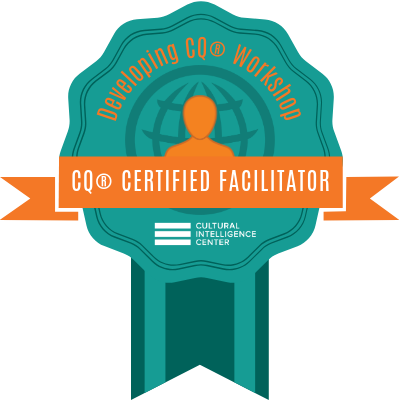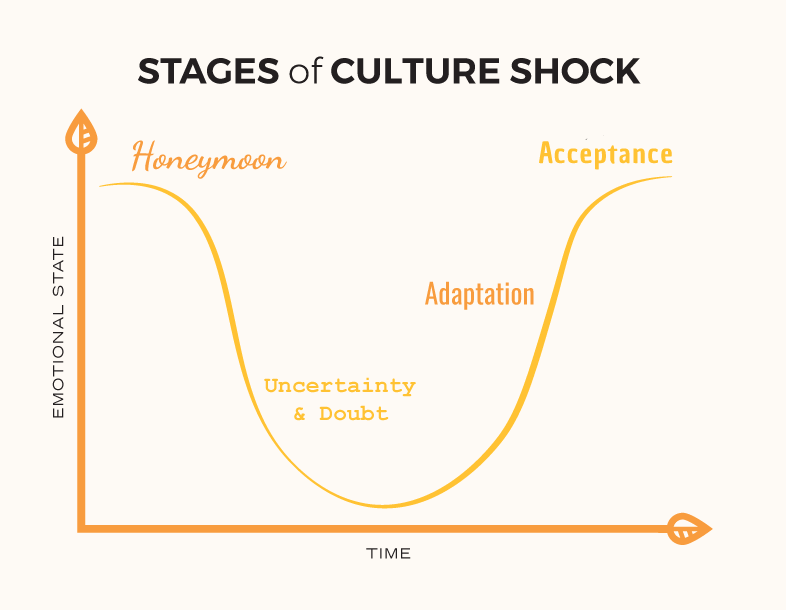For $109, you will get:
CQ Pro Assessment to measure your cultural intelligence and cultural preferences.
Two hour workshop.
Worksheets to help you reflect on your CQ and strategy for how to continue to grow your CQ.
What is cultural intelligence, anyway?
CQ is the capability to function and relate effectively in culturally diverse situations. CQ is a skill that everyone can learn.
CQ® Assessments are the only academically valid measurement of
Cultural Intelligence in the world.
Beyond Tourism uses the Cultural Intelligence (CQ) Model to assess your current abilities and help you learn to communicate cross-culturally better.
Why do I need to learn CQ skills?
If you are traveling abroad in any capacity, for a new job, a vacation, or as a virtual nomad, you will be in contact with people of varying cultural behaviors. You need to be prepared for that. However, the most important part of cultural intelligence is not to understand other cultures, it’s to to understand your own culture. Culture is invisible, and as many say, it’s comparable to an iceberg floating on the ocean. You see the visible culture in the traditional dress, how the public transportation operates, how they do their hair or makeup differently than your home country. Sure, you’ll be moving to another country. You can exchange your dollars for the local currency, learn about the most important sites, book your flights, and learn a few phrases in a different language. But do you know the best way to show respect and appreciation in another culture? Do you know how your new host country approaches hierarchy? Do you know why they act the way they do?
Any time you engage with a person from a different culture, you bring your own invisible, culture into the situation first. If you aren’t aware of your cultural programming, you are at a disadvantage, and you will experience cultural misunderstandings. Some cultural misunderstandings can be laughed about or cleared up afterwards, nut some cannot and cause real damage. If you are hoping for a genuine connection with real people, you will show deep respect to them by making an effort to adapt your behavior to their culture.
Taking a CQ assessment and learning tips and strategies for engaging cross-culturally will make you a much more intelligent and respectful citizen of the world. You will be able to set aside your cultural programming, truly gain a new perspective on the world, and make genuine connections across cultures. You’re
What is the assessment like?
There are two aspects that are measured during an assessment. First, the four dimensions of CQ will be measured. Those are CQ Drive (motivational CQ), CQ Knowledge (cognitive CQ), CQ Strategy (metacognitive CQ) and CQ Action (behavioral CQ). This is the actual measurement of your cultural intelligence that can grow with time and effort and predicts your intercultural effectiveness. Your results will be presented to you on a percentage scale, based on the hundreds of thousands of others who have taken the same assessment around the world. During our workshops and in debriefs we go into much more detail about these 4 dimensions of cultural intelligence, how they interplay and how to improve your scores.
Join the September CQ Workshop on Monday, September 9, 2024, 10am-12pm in The Foundry’s Narnia Room.
Second, your behavioral preferences are measured. Behavioral preferences can also be called cultural preferences. These are the ten cultural values you will be measured on:
Individualism/Collectivism
Power Distance
Uncertainty Avoidance
Cooperative/Competative
Time Orientation
Context (Direct/Indirect)
Being/Doing
Universalism/Particularism
Expressiveness (Neutral/Affective)
Focus (Monochromatic/Polychromatic)
During our workshops and in debriefs, we go into much more detail about these 10 behavioral preferences. Cultures in a region that clump together in their behavioral preferences are called “cultural clusters”. You can think of them as a sophisticated stereotype. If you’re American, you’re considered part of the Anglo cluster, along with Australia, Canada, New Zealand, and the UK. Of course there are variations between the countries in the cluster, and there can be great variation between people in the same country. These clusters are meant to be a broad guide to learning about cultures, not an exact science.
Once you get your behavioral/cultural preferences report, you can truly begin to understand what your culture is like. Culture is invisible. It’s like a software running in your brain. It explains why you do what you do. For example, if you’re from an Anglo culture and in an airport in another country, you might see people bunching up at the airline counter, not lining up. You might be wondering why they aren’t waiting their turn. You might think, “They must be a country of selfish, demanding people that don’t care about fairness. It’s easier to just stand in line and wait your turn! I probably should talk to someone at the airline about the utter disorganization and disrespect I’m seeing at their counter. It’s actually shocking.” These are low CQ thoughts, and they lead to damaging stereotypes. It’s easy to let low CQ thoughts creep into your mind, though, because in your mind, there’s no other fair way to line up. It seems straightforward to you.
Instead of giving in to damaging stereotypes, you need to be curious as ask why this culture might not find orderly, neat queues as useful. There’s an answer there if you’re willing to listen and use your cultural intelligence. This example of lining up is just one example of how cultures can do the exact same thing differently, but experiencing a new way of doing things can be confusing and frustrating. We’ve all been in high stress travel situations where we’re desperate for the flight or the train. To have to shove your way to the front, as an American, feels wrong and dangerous and confusing and exhausting. It takes real patience and personal insight to grow your cultural intelligence to interact and engage interculturally.
“I have no special talent. I am only passionately curious.”
Hi! I’m Renae and I own and operate Beyond Tourism. It’s my small business! I lived abroad in South Korea for a year after college teaching English to kids. That’s when I first started to understand the significance culture has on a person. It was a challenging and growth-filled year for me, not to mention when I came back and struggled to find the words to describe what I experienced. I have spent many years of my career working and volunteering with refugees and immigrants, so while I have lived abroad, I also know a lot about building cultural intelligence from home. You can read more of my story here, including about my passion for music from around the world and radio show I have every week. I love talking about, thinking about, and teaching about culture. It’s one of the most exciting things I’ve discovered, and has allowed me to meet and hear the stories some of the most phenomenal people on the planet. I am certified by the Cultural Intelligence Center and you can see my credentials below. I can’t wait to help you grow your cultural intelligence!
How does cultural intelligence help me?
Cultural intelligence helps you everywhere . You have probably heard the statistics about how your own community is growing in diversity, with different generations, languages, immigrants, nationalities, refugees, students, and tourists, all very different in the way they lead their lives. When you’re at home, you may have friends, family, coworkers, neighbors, or people in your network that are from other countries. They probably speak English as one of many other languages, and they probably have amazing and horrifying stories about adjusting to life in the USA, if you take the time to ask. They have learned to adapt to the new culture, and they have tips and guidance on how you can do it. You can build your cultural intelligence by getting to know them, asking about their home culture, and listening with curiosity and an open heart. In business, you might have entire offices, or even customers, in other countries. In this case, improving your cultural intelligence can have a direct impact on your bottom line. When you learn the business and communication norms of the culture you’re working with, you gain the ability to flex and adapt, making them more comfortable with you, providing you a business advantage. Knowing how to do business with cultural intelligence is a huge advantage for your profits.
Maybe you aren’t interested in living abroad, but you do want to travel. You can take a vacation and experience a cultural exchange. At Beyond Tourism, we can teach you cultural intelligence, and make book trips that will change your life. Combining cultural intelligence with ethical, responsible travel can provide you with a truly transformative experience. Building your skills as you travel will allow you to return home and be able to engage with a shrinking world that is also growing in diversity. There are companies out there that can provide you with unique opportunities to connect with a host culture, many of them making sure that your money is going directly into that community. This is not the kind of travel where you’re transported through another country in a bubble. This is integrated, engaged travel. Traveling in a bubble is easy. Getting out of the bubble to engage with the culture takes a culturally intelligent, culturally gritty and culturally curious person. Beyond Tourism can get you there.
What is your cultural intelligence?
Sign up for a 2 hour CQ workshop today!
Monday, September 9, 2024 from 10am-12pm CDT
The Foundry’s Narnia Room in Lincoln, Nebraska
“The sort of frenzied compression of time needed to take the tour, to see the sights, keeps you in a bubble that prevents you from having magic happen to you. Nothing unexpected out wonderful is likely to happen if you have an itinerary in Paris filled with the Louvre and the Eiffel Tower.”
If you are planning to move abroad and start over in a new country, you have a whole new cultural challenge ahead of you. Culture shock is real and it can make or break you. Being prepared with knowledge about how to engage with the new culture, why they do what they do, and how you can alter your software of the mind to better integrate will soften the blow of culture shock, not to mention give you a better chance at making new friends, gaining fluency in the language, and building a support network that will make you feel comfortable and connected. These skills can help you successfully live abroad in the long-term. Beyond Tourism can help you be prepared for this life-changing experience.
“The world is a book, and those who do not travel read only one page.”
Monday, September 9th, 2024 from 10am-12pm
The Foundry’s Narnia Room in Lincoln, Nebraska
You will get:
CQ Pro Assessment to measure your cultural intelligence and cultural preferences
Two hour workshop
Worksheets to help you reflect on your CQ and strategy for how to continue to grow your CQ
Or email Renae with your ideas and questions below or at info@goingbeyondtourism.com.














